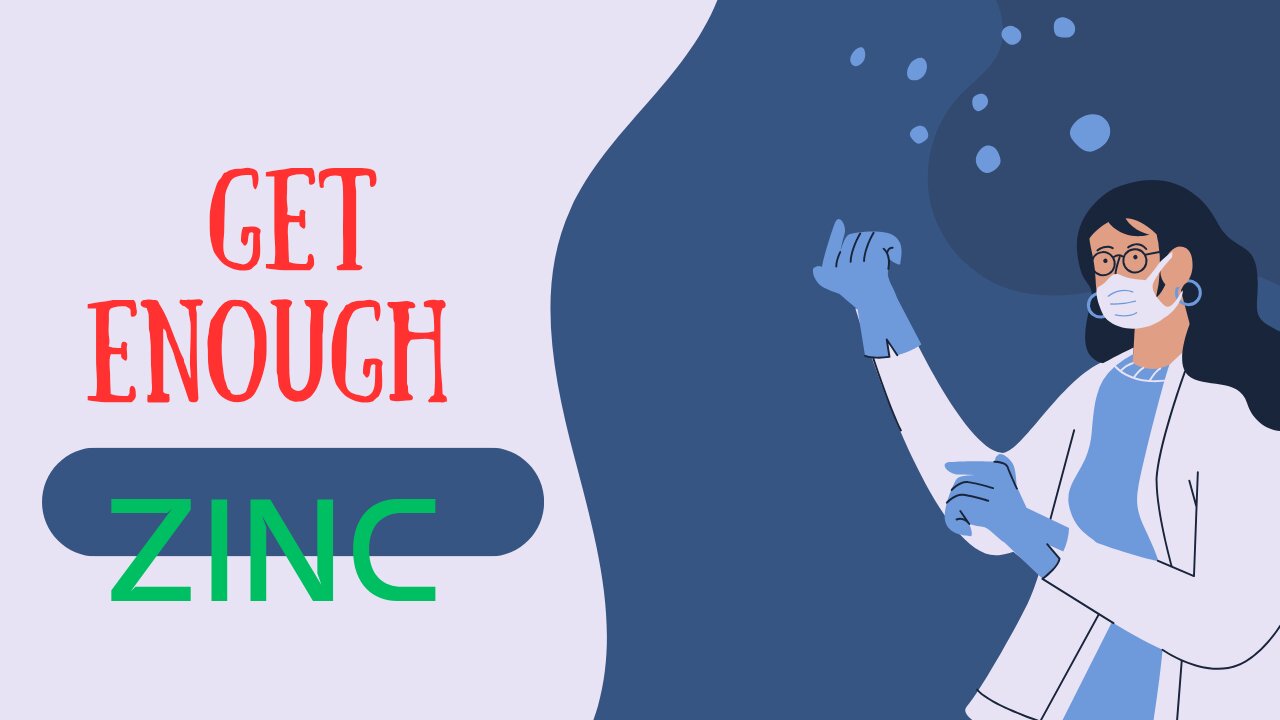Premium Only Content

how to get enough ZINC
Zinc is an essential trace mineral crucial for numerous bodily functions, including immune system support, wound healing, DNA synthesis, and cellular metabolism. As the second-most abundant trace mineral in the body, zinc is vital for maintaining skin integrity, promoting healthy growth and development, and supporting repImmune System Support: Zinc plays a pivotal role in immune cell function and signaling, helping the body fight off infections and illnesses.
Wound Healing: This mineral accelerates wound healing by promoting collagen synthesis and inflammatory response.
Skin Health: Zinc is commonly used in topical treatments for acne, eczema, and other skin conditions due to its anti-inflammatory properties.
Cognitive Function: Adequate zinc levels are essential for maintaining cognitive function and may help in managing conditions like ADHD.
Reproductive Health: Zinc is vital for hormone production and reproductive health, influencing both male and female fertility.
Common Signs of Zinc Deficiency:
Deficiency in zinc can manifest through various symptoms, including:
Hair loss
Skin rashes or lesions
Delayed wound healing
Loss of appetite
Impaired taste or smell
Frequent infections
Cognitive difficulties
Diarrhea (particularly in infants)
Individuals at higher risk include vegetarians, pregnant or breastfeeding women, those with gastrointestinal disorders, and individuals with alcohol use disorder.
Top Zinc-Rich Foods:
Incorporating zinc-rich foods into your diet can help maintain optimal zinc levels:
Animal Sources: Oysters, beef, pork, chicken, and lamb are among the richest sources of zinc.
Plant-Based Sources: Legumes (chickpeas, lentils), seeds (pumpkin, sesame), nuts (cashews), and whole grains (oats, quinoa) provide significant amounts of zinc.
Recommended Daily Intake:
The Recommended Dietary Allowance (RDA) for zinc varies by age and sex:
Adult Men: 11 mg/day
Adult Women: 8 mg/day
Pregnant Women: 11 mg/day
Breastfeeding Women: 12 mg/day
It's important to note that excessive zinc intake can lead to toxicity, with symptoms such as nausea, vomiting, and impaired immune function.
SEO Keywords:
Zinc benefits
Zinc deficiency symptoms
Zinc-rich foods
Immune system support
Wound healing
Skin health
Cognitive function
Reproductive health
Zinc supplements
Daily zinc intake
Internal SEO Links:
Zinc Supplements: Benefits and Considerations
Top 10 Zinc-Rich Foods to Include in Your Diet
Understanding Zinc Deficiency: Causes and Treatment
External SEO Links:
Healthline: Zinc Benefits and Deficiency
Cleveland Clinic: Zinc Deficiency Symptoms
WebMD: Foods High in Zinc
-
![MAHA News [9.5] RFK Lights Up Congress, CDC House Cleaning, Fight Over Vax Mandates For School Children](https://1a-1791.com/video/fww1/b9/s8/1/i/h/m/f/ihmfz.0kob-small-MAHA-News-9.5.jpg) LIVE
LIVE
Badlands Media
12 hours agoMAHA News [9.5] RFK Lights Up Congress, CDC House Cleaning, Fight Over Vax Mandates For School Children
521 watching -
 LIVE
LIVE
The Tom Renz Show
1 hour agoWho Is Undermining Trump?
160 watching -
 1:00:55
1:00:55
Mark Kaye
4 hours ago🔴 Trump Tells Tech Tycoons It's Time To Pay Up!
19.7K4 -
 LIVE
LIVE
Right Side Broadcasting Network
6 hours agoLIVE: President Trump Makes an Announcement - 9/5/25
5,376 watching -
 LIVE
LIVE
SportsPicks
3 hours agoCrick's Corner: Episode 77
235 watching -
 1:06:02
1:06:02
LindellTV
2 hours agoBREAKING: FBI Returns Mike Lindell’s Cellphone
20.2K9 -
 1:04:31
1:04:31
Jeff Ahern
2 hours agoFriday Freak out with Jeff Ahern
8.37K -
 7:33
7:33
Talk Nerdy Sports - The Ultimate Sports Betting Podcast
5 hours agoFriday Night Lights in BRAZIL 🇧🇷🔥🏈
8.06K -
 LIVE
LIVE
Reidboyy
2 hours ago $0.64 earned$20 Billion Dollar Warzone Tournament! Protect The President
55 watching -
 1:15:26
1:15:26
Tucker Carlson
4 hours agoWhistleblower Exposes the Real Puppet Masters Controlling the State Department and Plans for Gaza
65.7K51